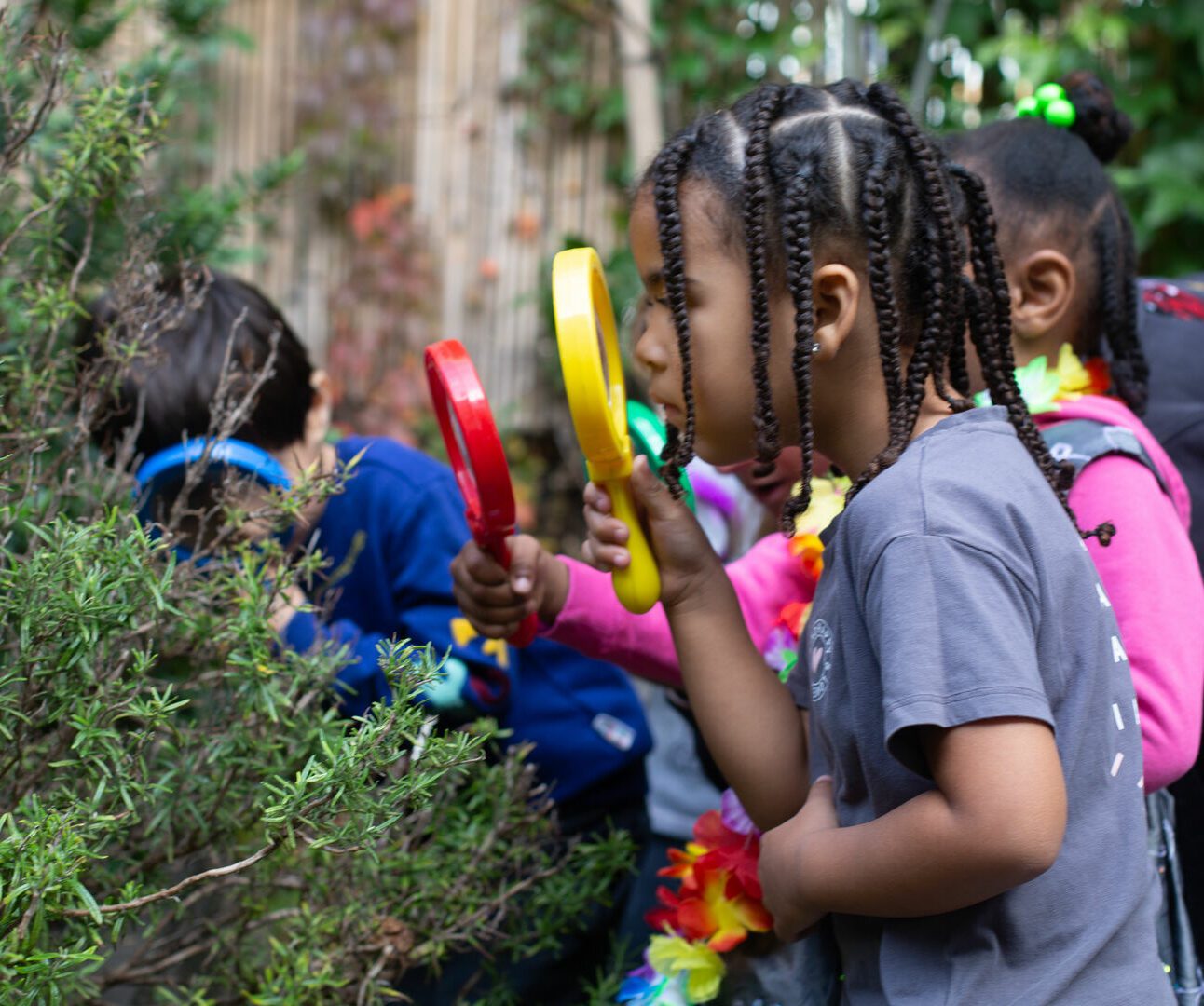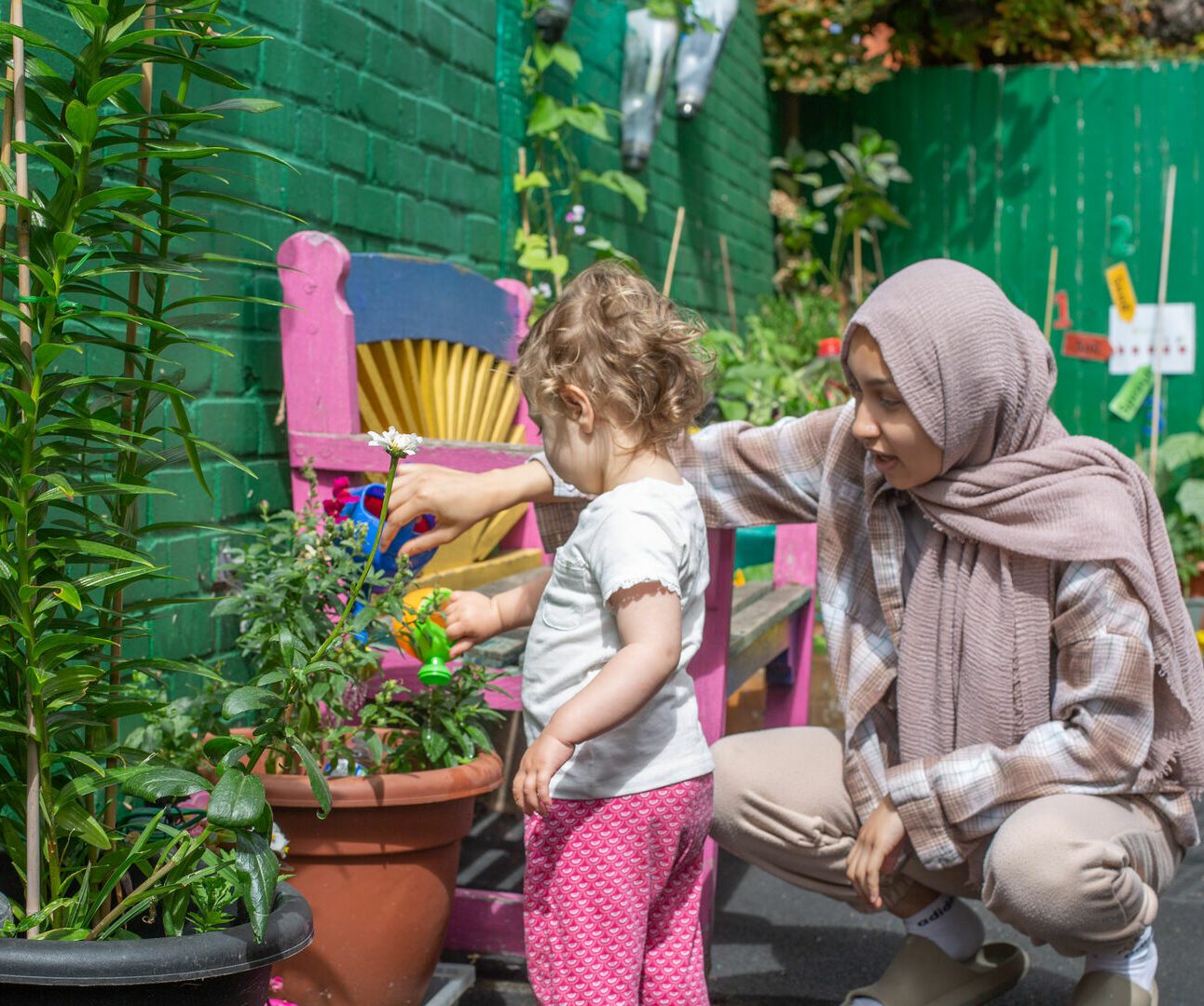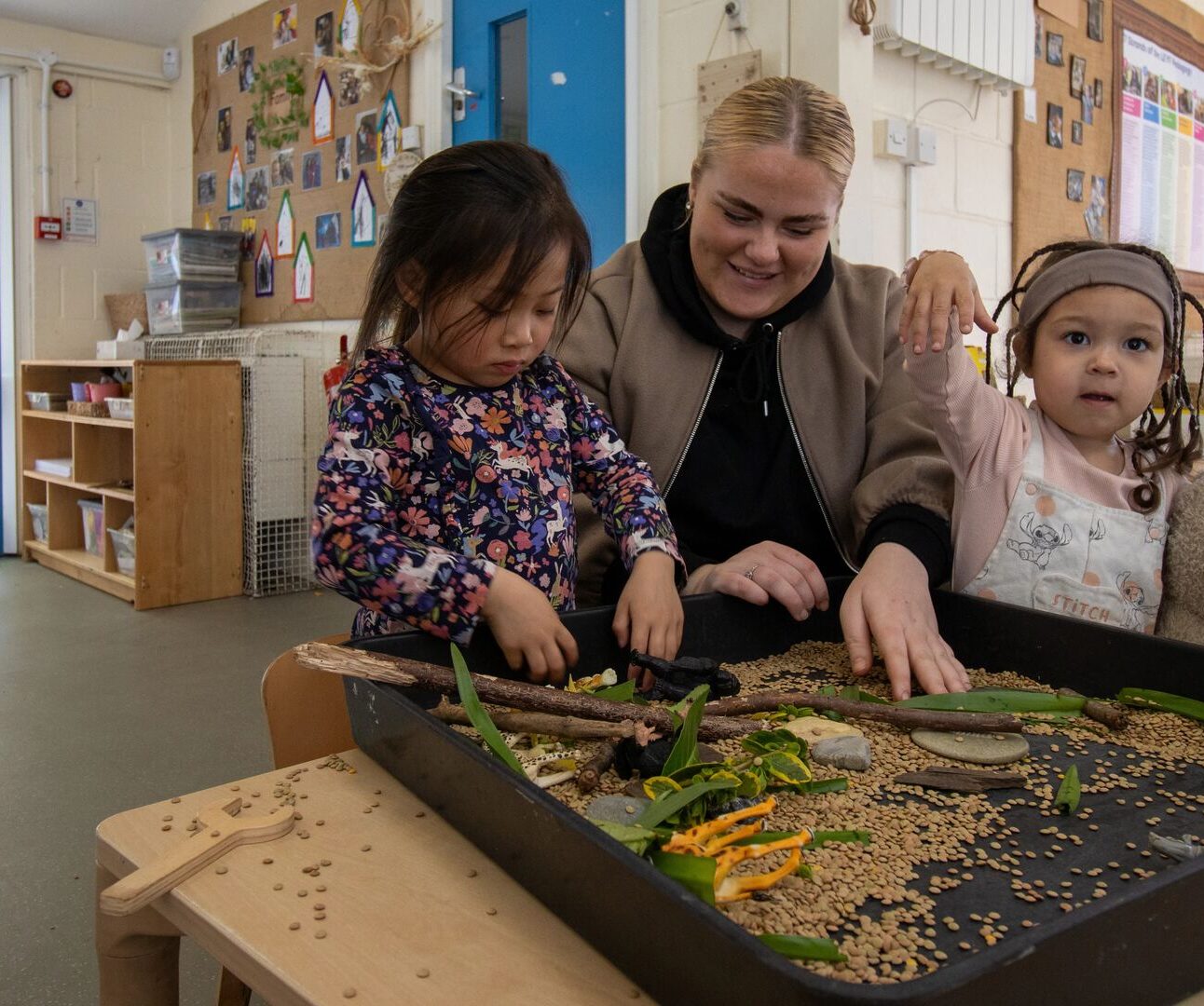
Talking Early Years: In conversation with Solitaire Townsend
Transforming Business to Create a More Sustainable…
April 22nd 2021
During lockdown last year, I began to think a lot more about the future. There was so much worry and panic and I wondered what message we were giving children especially as I believe that children are agents of change and our job as Early Years teachers is to prepare children to undertake their roles and responsibilities as future global citizens. Eighteen months before lockdown we had really begun to develop our approach to sustainability particularly as a social enterprise we have to demonstrate economic, social and environmental impact across our triple bottom line.
We had launched Green LEYF and started to look at all the practices and processes across the organisation with great support from parents. We took some good initiatives including banning single use plastic, removed glitter, increasing our clean air activities, examined food wastage, introduced washable aprons and signed up to complete the ISO14001 to ensure sustainability was woven into our procurement.
When the pandemic hit, many staff were distressed that all the progress we had made would be lost. They were distressed that sustainability had finally been moving to the centre of the political and public agenda and now it was going backwards. I was very struck by their concerns especially because when we first started to implement Green LEYF not everyone was delighted by the changes. For example, we don’t have a uniform, although we have cotton tabards available for staff if they choose to wear them, but some staff come from a culture where plastic aprons and gloves are de rigeur and they thought Chicken Licken would fall from the sky if they did not gown up like a surgeon before doing anything messy! Now, pandemic protocol expected us to gown up and plastic was back with a vengeance.
At LEYF we have Champions who lead on issues that interest them. Nick Corlett is the Green LEYF lead. That means seeking out research to inform our practice. Education is a very powerful pathway to sustainability, but it depends on adults who understand how to integrate sustainability into every element of their leadership, pedagogy and operational practice. Sustainability is not a subject or part of an environmental programme, it is central to the child’s whole experience and needs to be part of a broad and inclusive quality education.
In 2018, Nick was among the LEYF cohort at the EECERA Conference in Thessaloniki. We were presenting our research on Men in Childcare and while we were there, he sought out every seminar on sustainability. We attended all the workshops led by Swedish, Australian and Finnish colleagues where sustainability is on the agenda. Much of the discussion recognised that teachers generally focused on social and cultural sustainability and there was less focus on economic sustainability, which as social enterprise is right at our core. There were worries about children experiencing nature deficits disorder because of their disconnect with nature and the outside and discussions about whether sustainability should be built into the national curriculum, how it is measured and how to upskill teachers. It resulted in us looking more broadly at how we would weave sustainability into the LEYF Pedagogy so it was not an add on or a recycling project.
The result is our emerging approach to sustainability influenced by the principles of social pedagogy the Global Sustainable Development Goals and permaculture which advocates us learning to live lightly on the planet and in harmony with nature to ensure we can sustain human activities for many generations to come. Our eight steps are the basis of the first ever Level 4 qualification (accredited by CACHE) Developing Sustainability in the Early Years, and our book 50 Fantastic Ideas for Sustainability (out 10 June 2021).
8 Steps for Sustainable Practice
| 1 | Reduce | Decrease consumption of food wastage, materials and resources |
| 2 | Reuse | Use materials many times and for different purposes |
| 3 | Repair | Fix things rather than discarding them or repurposing them |
| 4 | Recycle | Be aware of alternatives to discarding rubbish and educating children of the importance and impact they can have through this |
| 5 | Rot | Let things go back to the earth to enrich the next crop of plants while also providing a habitat for many insects and small rodents. |
| 6 | Respect | Nurturing understanding of and respect of nature and natural processes and reducing the extent to which they are violated; showing consideration and compassion for people and animals |
| 7 | Reflect | The habit / skill of being thoughtful, asking questions and wondering about experiences |
| 8 | Responsibility | Being trusted to take care of something or to do something worthwhile – be socially and economically sustainable e.g. fair trade and local markets to promote community wellbeing |
Early education is a natural place to begin the conversation about sustainability. We do not have all the answers to sustaining our planet, but we will have greater success if we teach our children about their planet from the earliest age.
If you are interested in the Level 4 qualification (accredited by CACHE) Developing Sustainability in the Early Years please ’register your interest by signing up online or emailing green@leyf.org.uk

Transforming Business to Create a More Sustainable…

Where are you going on holiday? Will it be too hot? A realistic question as Southern Europe burns. I chose the west of Ireland where a sliver of sunshine…

“Disadvantage” is one of those terms we bandy about in policy papers and conference keynotes, but what do we mean by it? Do we understand the lived reality behind the…